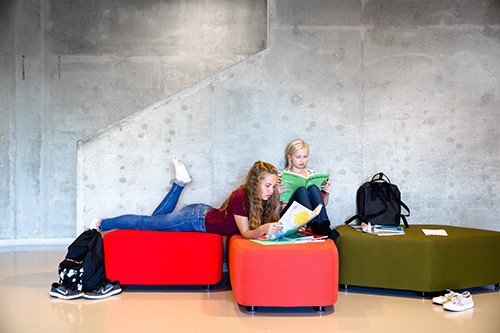
Finlandia, a favorite for us here at La Búsqueda Global para la Educación, es famoso por su pensamiento innovador y progresivo cuando se trata de la educación. Así que estaba encantado de hablar con Kirsti Kauppi, the recently appointed Ambassador of Finland to the United States. Ambassador Kauppi has over 30 years of experience in foreign policy. She grew up in northern Finland in a small village close to Oulu. She’ll work to improve Finnish-American relations and build people’s interests and knowledge regarding Finland. In our interview which follows, she discusses what we have to learn from Finland and what Finland has to learn from us, as well as how both countries can work to boost sustainability in education. Adicionalmente, she had much to share about 21st century learning strategies and intelligent hybrid classrooms.
Ambassador Kauppi – what does America have to learn from Finland and Finland from America?
How to best educate our children is one of the biggest questions in both of our countries. The world is changing very fast. The future poses new challenges to societies and individuals as well. We need an educational system that equips us to face those challenges and to make the most of our lives – de nuevo, as individuals but also as societies and, in the final analysis, as humankind. Finlandia es un país pequeño, and in our history education has always been seen as a means to tap all the resources of the society. What I have always admired in the USA, is the optimistic attitude and a healthy self-confidence that children grow up with. I think we have a lot to learn from each other as we seek to build the future of our own countries and of the world.
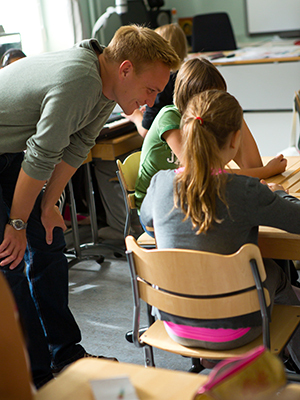
How can education encompass the goals of the UN 2030 sustainability agenda? How can peace, prosperity, and environmental consciousness be integrated into the classroom?
Si queremos alcanzar los objetivos comunes adoptadas en la ONU en septiembre, que tienen que ser parte de todo lo que hacemos, incluyendo la educación. From the point of view of education, not only the goal number four, “quality education,” is relevant, but all 17 goals of the Agenda are.
There are important education specific processes going on at the universal level on the essence of education for sustainable development (ESD). Por ejemplo, the 38th session of the General Conference of UNESCO approved the Framework for Action for Education 2030 Agenda in November.
Educación 2030 is a major achievement of the international education community. It emphasizes inclusive and equitable quality education and lifelong learning opportunities for all, regardless of their background. Además, the Global Action Program (GAP) on Education for Sustainable Development and the related roadmap for implementing were adopted in 2014.
The GAP has two objectives. Primera, to reorient education and learning so that everyone has the opportunity to acquire the knowledge, habilidades, values and attitudes that empower them to contribute to sustainable development – and make a difference. And second, to strengthen education and learning in all agendas, programs and activities that promote sustainable development.
Finland values these frameworks on education, and is examining for its part what their implementation means to us, and to our current education practices. One possibility is to create a national plan on how to fulfill the goals of our international agreements.
Education for sustainable development is well integrated into the Finnish educational system. It is one of the main goals of the government concerning basic education and distribution of lesson hours. In the new Core Curriculum for Basic Education, sustainable development is part of all seven cross-cultural cross-cutting competence-areas or themes that are included in all instruction, particularly in the cross-cutting theme of “Participation and building a sustainable future”.
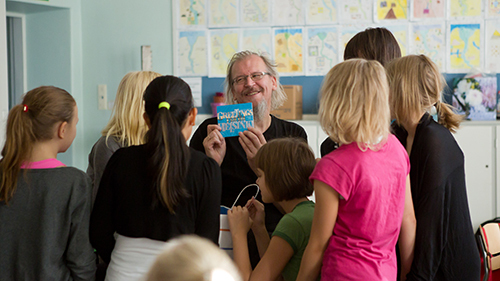
Can you speak to me generally about Finland’s new “Phenomenon-based” o “topic-based” learning initiative? How it is different from traditional subject based learning?
We talk about the 21st century skills. Estas habilidades incluyen el pensamiento crítico, searching, producing and applying information, aprender a aprender, ICT-skills, social skills and all-in-all a broad know how surpassing the explicit knowledge taught in specific disciplines. The new core curriculum gives these skills much emphasis.
They represent a know how that is to be attained in seven sectors of the core curriculum: 1) thinking and learning how to learn, 2) comprensión cultural, communication and expression skills, 3) everyday life skills and knowledge to take care of oneself, 4) multiple literacies, 5) ICT-skills, 6) working-life and entrepreneurial skills 7) skills to participate, contribute and build a sustainable future.
The new core curriculum is built on “enfoques”. The skills and understanding are not built solely on theoretical information and explicit knowledge gathered by studying specific subjects. How and with what means the students study are more important in attaining the know how of the 21st century skills. This calls for a new pedagogic approach. It is important, por ejemplo, to motivate the pupils to work purposefully, develop skills for acquiring, applying and evaluating information, promote social flexibility and an ability to function in constructive cooperation, and the assumption of responsibility for others.
The approach-based working method aims to make teaching more integrated, and develop both a wide understanding and versatile skills. This is not an entirely new idea, since the Finnish basic education has always tried to offer a broad point of view to the world. Now the focus of the national curriculum has moved to make teaching more integrated, hence the integrative education model has a more important role than before.
Finnish basic education is, also in the new curriculum, based on subjects. A profound basic and common knowledge of different subjects remains the core of our general education. Integration can be adapted into teaching in various ways. Primera, teaching can be combined by studying the same topic in many subjects at the same time, es decir. simultaneously. Segundo, topics of the same theme can be arranged to be studied one after the other, es decir. conjoined. En tercer lugar, there can be theme days, excursions or events organized around a specific topic of a given school subject. Cuarto, long-term entities combining multiple subjects can be planned and executed in many different ways. Finalmente, one can form integrated entities from a variety of subjects.
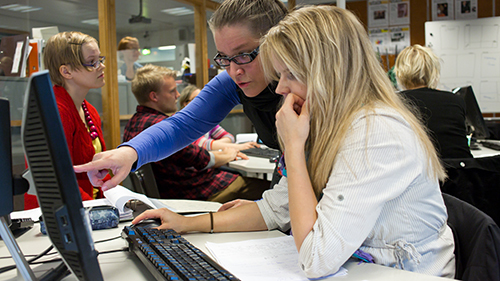
What sort of synergy is there between education today and the education needs of tomorrow?
Despite the rapid pace of change in the world, much remains the same. The children are future citizens, trabajadores, empresarios, decision makers and parents. The education system cannot be an isolated part of the society, it has to adapt to the changes, create change, and hold on to valued parts that do not need to be changed.
Pupils entering the Finnish comprehensive education system at the age of seven will stay in the workforce until around 2070’s. Durante este tiempo, tools and occupations will probably undergo drastic changes. The aim of our education system is to equip all our children with the necessary knowledge and skills to take part in shaping their own future. These skills and knowledge are not the same as for our generation. Por lo tanto, the curriculum, learning environments, teacher education, school leadership, learning materials and tools need constant updates.
The education system should also be a catalyst of change. Pupils as innovators and new thinkers, teachers as managers and coaches of learning, and schools as future oriented learning organizations can bring new innovations to improve society and provide competitive advantage in global competition. This requires autonomy and room for rethinking on all levels in the education system.
We must also always remember that children are still children, needing care, room for play, and protection and guidance from responsible adults. The values inherent in our new core curriculum for comprehensive education remain largely the same: uniqueness of pupils and their right to good education, humanity, comprehensive knowledge of the world, equality, democracy, seeing cultural differences as richness, and the necessity of a sustainable way of life.
As far as future educational needs are concerned, we should see and hear the signals and needs coming from the society at large. We should also actively engage in creating the responses, and continue passing on the values and ideas that previous generations have guarded and passed on to us.
Why an integrated hybrid education now? What is it about the present moment that means more real world skills are needed to be brought into the classroom?
More information is accessible to more people all the time, and the life cycle of information has shortened. We need continuous personal development to keep pace with this, to be able to shape our own lives and have fulfillment. The avalanche of knowledge and information is just too much. We need skills and comprehension which will not become outdated, but instead create a basis to a continuous renewal: skills of thinking and learning, habilidades sociales, ICT-skills, creative and innovative skills. The competition over students’ hora, motivation and attention has become more intense than before. Schools need to find new ways to engage their students, now and also in the future. We in Finland are trying to do this, and that is why we put great effort in continuously developing our education and school system.
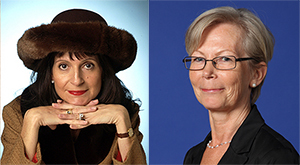
(All photos are courtesy of the Embassy of Finland Washington D.C.)
Únete a mí y reconocidos a nivel mundial los líderes de opinión, incluyendo a Sir Michael Barber (Reino Unido), DR. Michael Bloquear (EE.UU.), DR. Leon Botstein (EE.UU.), Profesor Clay Christensen (EE.UU.), DR. Linda Darling-Hammond (EE.UU.), DR. MadhavChavan (India), El profesor Michael Fullan (Canada), El profesor Howard Gardner (EE.UU.), El profesor Andy Hargreaves (EE.UU.), Profesor Yvonne Hellman (Países Bajos), Profesor Kristin Helstad (Noruega), Jean Hendrickson (EE.UU.), Profesor Rose Hipkins (Nueva Zelanda), Profesor Cornelia Hoogland (Canada), Honorable Jeff Johnson (Canada), Señora. Chantal Kaufmann (Bélgica), DR. EijaKauppinen (Finlandia), Secretario TapioKosunen Estado (Finlandia), Profesor Dominique Lafontaine (Bélgica), El profesor Hugh Lauder (Reino Unido), Señor Ken Macdonald (Reino Unido), Profesor Geoff Masters (Australia), Profesor Barry McGaw (Australia), Shiv Nadar (India), Profesor R. Natarajan (India), DR. PAK NG (Singapur), DR. Denise Papa (Estados Unidos), Sridhar Rajagopalan (India), DR. Diane Ravitch (EE.UU.), Richard Wilson Riley (EE.UU.), Sir Ken Robinson (Reino Unido), Profesor Pasi Sahlberg (Finlandia), El profesor Manabu Sato (Japón), Andreas Schleicher (PISA, OCDE), DR. Anthony Seldon (Reino Unido), DR. David Shaffer (EE.UU.), DR. Kirsten Immersive Are (Noruega), Canciller Stephen Spahn (EE.UU.), Yves Theze (LyceeFrancais EE.UU.), Profesor Charles Ungerleider (Canada), Profesor Tony Wagner (EE.UU.), Sir David Watson (Reino Unido), Profesor Dylan Wiliam (Reino Unido), DR. Marcos Wormald (Reino Unido), Profesor Theo Wubbels (Países Bajos), El profesor Michael Young (Reino Unido), y el profesor Zhang Minxuan (De China) a medida que exploran las cuestiones de educación cuadro grande que todas las naciones se enfrentan hoy.
La Búsqueda Global para la Educación Comunitaria Página
C. M. Rubin es el autor de dos ampliamente leído serie en línea por la que recibió un 2011 Premio Upton Sinclair, “La Búsqueda Global para la Educación” y “¿Cómo vamos a Leer?” Ella es también el autor de tres libros más vendidos, Incluido The Real Alice in Wonderland, es el editor de CMRubinWorld, y es una Fundación Disruptor Fellow.
Siga C. M. Rubin en Twitter: www.twitter.com/@cmrubinworld


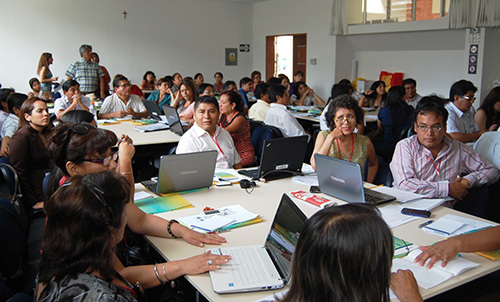

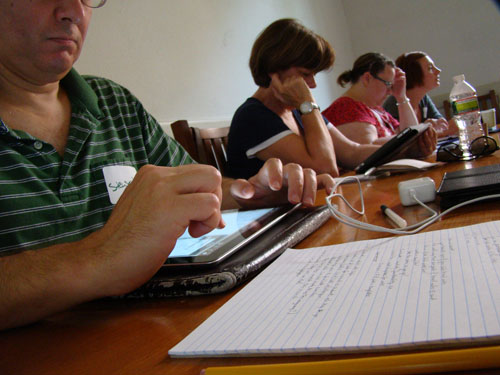

Comentarios recientes